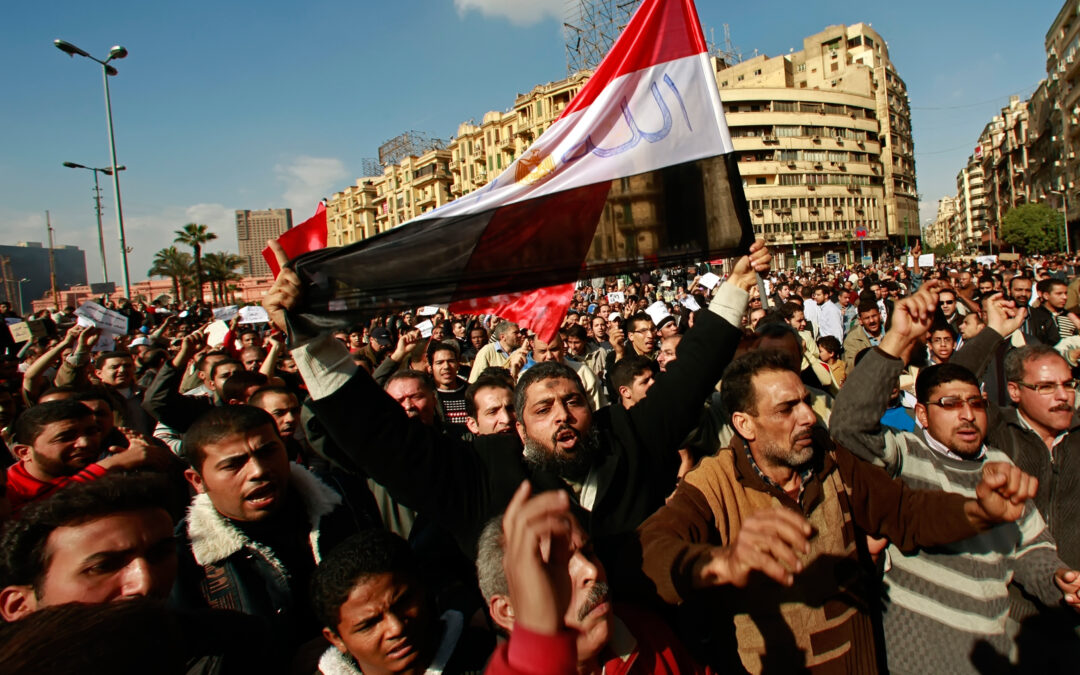
Jan 21, 2014 | Advocacy, Non-legal submissions, Position papers
The ICJ submitted today its contribution to the public consultation of the European Commission on the future of home affairs policies in the European Union.
In its contribution, the ICJ highlighted the need to increase human rights protection in EU home affairs legislation and in its implementation.
The ICJ submission recommends an increased monitoring of the human rights compliance of draft legislation; calls for increased transparency in the legislative process; and for a better use of infringement proceedings by the European Commission to ensure the effective implementation of EU home affairs legislation with particular attention to the protection of human rights.
The ICJ addressed, in its contribution, the importance of a correct and human rights compliant implementation of the new Common European Asylum System, and the need of further reforms in the EU legislation on asylum, migration and border control.
Finally, the ICJ stressed the poor record of the EU institutions, besides the European Parliament, in ensuring accountability for human rights violations committed in countering terrorism, for example in the cases of the National Security Agency (NSA) surveillance programme scandal and in the cases of alleged complicity of European States in the US-led system of renditions and secret detentions.
EU-PublicConsultation-ICJ-FutureHomeAffairs-2014-Final (download the contribution)

Jan 13, 2014
The ICJ today asserted that the draft Constitution to be voted on in a referendum on Tuesday and Wednesday is highly flawed and should be modified if it is to serve as a suitable basis for upholding the rule of law in a democratic Egypt.
The referendum campaign has taken place within a context of fear, intimidation, and repression, calling into question the fairness of the entire process, the ICJ says.
The deficiencies are manifested in the content of a number of the draft Constitution’s provisions and the procedure under which the draft was elaborated, which are incompatible with rule of law principles and international human rights standards, the Geneva-based organization adds.
If the draft Constitution is to be approved, the next elected House of Representatives should remedy these deficiencies by amending the Constitution and initiating legal and policy reforms in line with international standards.
In a position paper published today, the ICJ details how the process of adopting a new Constitution in Egypt contravenes basic principles of inclusive participation, representation, and transparency.
It says the manner of selection and the criteria upon which the members of the expert committee and the committee of 50 were chosen lacked any semblance of democratic legitimacy and representation.
The ICJ is also concerned that the draft Constitution resulting from this procedure reproduces most of the provisions and omissions of Egypt’s past Constitutions, and therefore does not serve as an appropriate foundation on which the rule of law can be established.
The draft Constitution would continue to shield the armed forces from accountability and civilian oversight, would not limit the jurisdiction of military courts to try civilians, provides few guarantees for judicial independence, and would subject various rights and freedoms to “the regulations of the law.”
The ICJ is concerned that such “regulations” might have the potential to erode the very essence of these rights.
For example, while Article 73 of the draft Constitution guarantees the right to freedom of assembly, Law 107 of year 2013 gives the authorities wide powers to ban public meetings and peaceful demonstrations if deemed a “threat to public order”.
The law also empowers the security services to forcibly disperse peaceful protests, including by using lethal force even when it is not strictly necessary to protect lives.
“The current constitution-making process resembles the muddled and highly flawed processes of 2011 and 2012 and is yet another missed opportunity to break with the practices of the past,” said Said Benarbia, Director of ICJ’s Middle East & North Africa Programme. “The Egyptian authorities should undertake a legitimate and participatory process to amend the draft Constitution to ensure its full compliance with international standards, including those guaranteeing independence of the judiciary, ensuring the accountability of the armed forces and their subordination to legitimate civilian authorities, and recognizing universally accepted human rights.”
Contact:
Said Benarbia, Director, ICJ Middle East and North Africa Programme, t: + 41 22 979 38 17, e-mail: said.benarbia(a)icj.org
Egypt-PolicyPaper new Constitution-advocacy-2014 (download position paper in pdf)
Photo: Carolyn Cole/Los Angeles Times/MCT

Nov 29, 2013 | Advocacy, Non-legal submissions
The ICJ’s Director of the International Law and Protection Programmes, Alex Conte, today delivered the keynote address at the launch of the OSCE manual on Human Rights in Counter-Terrorism Investigations.
Responding to the challenges faced by some OSCE participating States in operationalizing human rights when conducting counter-terrorism investigations, the OSCE Office for Democratic Institutions and Human Rights (ODIHR) and the OSCE Secretariat’s Transnational Threats Department / Strategic Police Matters Unit jointly developed a manual on Human Rights in Counter-Terrorism Investigations. The manual adopts an operational approach to different phases of counter-terrorism investigations and linking them to relevant human rights standards.
The keynote address focussed on the link between human rights protection and effective counter-terrorism practices; and on how human rights are themselves useful tools to successfully prevent and counter terrorism. It identified five law, policy and practical reasons that human rights compliance is required and/or contributes to the prevention and countering of terrorism:
- Human rights compliance while countering terrorism is an international obligation, recalling that States’ right and duty to combat terrorism is part of international and regional human rights law stemming from the duty of States to protect individuals under their jurisdiction from interference with their enjoyment of human rights, including the rights to life and security;
- Human rights compliance at the investigative stage of counter-terrorism cases means that there will be an exponentially greater chance that the precious resources dedicated to terrorist investigations will result in the admissibility of evidence;
- Human rights compliance at the investigative and pre-trial stages of counter-terrorism cases (considering the impact of prolonged detention without trial or without charge) gives rise to a greater prospect of achieving a sound conviction;
- Bringing perpetrators of terrorist acts to justice through effective (i.e. human rights-compliant) investigation and prosecution contributes to the realisation for victims of terrorism of their rights to truth and reparation; and
- Human rights compliance not only assists the short-term objectives of effective counter-terrorism investigations and prosecutions, but is also the essential basis for a sustainable, long-term approach to the countering of terrorism by avoiding further conditions conducive to the spread of terrorism.
ICJ-OSCE-ManualOnHumanRightsInCounterTerrorismInvestigations-LaunchEvent-KeynoteAddress-NonlegalSubmission-2013 (download keynote address in PDF)
OSCE_HRCT_Manual (download manual on Human Rights in Counter-Terrorism Investigations in PDF)

Nov 11, 2013
The ICJ today submitted to the UN its recommendations for a draft set of “Basic Principles and Guidelines” on the right of anyone deprived of liberty to challenge the lawfulness of his or her detention, and the right of victims of arbitrary or unlawful detention to an effective remedy.
The United Nations Working Group on Arbitrary Detention, which will meet in Geneva 13 to 22 November 2013, was requested last year by the Human Rights Council to prepare the draft “Principles and Guidelines” before the end of 2015. The ICJ submission responds to a call by the Working Group for input to the drafting process.
Among the key aspects highlighted by the ICJ submissions are:
- the elements of an effective remedy for unlawful or arbitrary deprivation of liberty;
- the requirement that anyone deprived of liberty for any reason have access to a proper court to seek release;
- the broad grounds such courts must consider in determining whether the detention is lawful;
- the requirement that the proceedings lead to a prompt decision that is actually implemented by the detaining authorities;
- the right of the detainee to have confidential access to a lawyer of his or her choosing, promptly after arrest or detention;
- the right of the detainee to be present for the proceedings;
- necessary guarantees for the fairness of such proceedings, including that the person and his or her lawyer have access to the evidence and allegations on which the detention is based;
- the right to challenge the lawfulness of detention continues to apply in situations of emergency.
UN-ICJ-WGAD68-SubmissionHabeas-advocacy-non-legal submission-2013 (full text in pdf)

Oct 29, 2013 | News
The ICJ welcomes the report of the UN Special Rapporteur on the independence of judges and lawyers presented to the UN General Assembly today.
The report calls for the adoption by the Human Rights Council of the draft principles governing the administration of justice through military tribunals, known as the ‘Decaux Principles’.
“This is a major step forward towards the establishment of universally applicable minimum standards to regulate the use and operation of military courts and tribunals”, said Alex Conte, Director of the ICJ’s International Law and Protection Programmes.
“The investigation and prosecution of alleged offences involving serious human rights violations is in many countries undertaken by military courts for the purpose of avoiding the accountability of perpetrators of such acts. It is therefore significant that the UN Special Rapporteur has reaffirmed that the jurisdiction of ordinary courts should prevail in such cases,” he added.
“It is also important that the Special Rapporteur has reiterated the recommendation of many human rights experts that the trial of civilians in military courts should in principle not occur and should be limited to strictly exceptional cases,” Conte further said.
The ICJ closely followed and contributed to the development of the Decaux Principles and has repeatedly called for their adoption and implementation by all States.
These principles were elaborated in 2006 in consultation with human rights experts, jurists and military personnel from throughout the world, and include specific provisions relating to the establishment and functioning of military tribunals.
They are based on the principle that military justice should be an integral part of the normal judicial system and should operate in a way that guarantees full compliance with human rights, including the need to ensure accountability for perpetrators of human rights violations.
Contact:
Alex Conte, ICJ International Law and Protection Programmes Director (Geneva), t: +41 79 957 2733; email: alex.conte(a)icj.org









